#organic waste
Text
The new 'compost obligatoire' rules came into force on 1 January 2024. Here's what they entail.
As of 1 January 2024, organic waste recycling is mandatory in France under new 'compost obligatoire' rules.
With support from the government’s Green Fund, municipalities must provide residents with ways to sort bio-waste, which includes food scraps, vegetable peels, expired food and garden waste.
Households and businesses are required to dispose of organic matter either in a dedicated small bin for home collection or at a municipal collection point. Previously, only those who generated over five tonnes of organic waste per year were required to separate it.
The waste will then be turned into biogas or compost to replace chemical fertilisers. Alternatively, it can be composted at home.
The obligation is currently on local authorities to provide an easy means for households to compost or separate organic waste.
While facilities are rolled out, there will not be fines imposed for non-compliance. It is yet to be seen whether stricter rules will be imposed in future.
One-third of household waste is bio-waste
Organic waste from food and gardens accounts for almost one-third of household waste. When it is mixed with other rubbish, it typically ends up in landfills or incinerators, where it produces heat-trapping greenhouse gases like methane and CO2.
Food waste is responsible for about 16 per cent of the total emissions from the EU food system, according to the European Commission. Globally, food loss and waste generates around 8 per cent of all human-caused emissions annually, the UN says.
It can also contaminate packaging destined for recycling like paper, plastic and glass.
In 2018, only 34 per cent of the EU’s total bio-waste was collected, leaving 40 million tonnes of potential soil nutrients to be discarded, according to NGO Zero Waste Europe.
In France, an estimated 82 kg of compostable waste per person is thrown away each year.
Is bio-waste separation mandatory in other European countries?
Under the EU’s Waste Framework Directive, bio-waste collection is being encouraged this year, but it stops short of setting mandatory targets.
In many European countries, organic waste separation has already been implemented at the municipal level.
Milan in Italy has been running a residential food waste collection programme since 2014. Households were given dedicated bins and compostable bags to kick off the scheme.
Elsewhere, taxes or bans on incinerating bio-waste have encouraged similar schemes, with separate bins and home composting widespread in Austria, the Netherlands and Belgium.
The UK announced plans to roll out separate food waste collection in 2023. It remains voluntary for households in England, but is more strictly enforced in Wales and for business owners.
How to sort your bio-waste
Ideally, all waste - including organic matter - should be kept to a minimum.
This can be achieved through careful meal planning. Consuming, freezing or preserving food before it expires along with using every part of an ingredient also help to reduce waste. Some food waste can even be repurposed into animal feed.
Any food waste that cannot be saved or repurposed should be either composted or separated for collection. This includes uneaten food scraps, baked goods, dairy products, eggshells, fruit and vegetables and their peels, mouldy food, pet food, raw and cooked meat and fish, bones, tea and coffee grounds.
Liquids, non-food products and packaging should not be placed in bio-waste bins.
-via EuroNews.Green, January 2, 2024
#france#composting#eu#european union#organic waste#biofuels#recycling#sustainability#food#food waste#compost#carbon dioxide#carbon emissions#sustainable living#good news#hope
175 notes
·
View notes
Text

He got into the trash can himself bc the recycling bin didnt accept him (cannon event)
#dazaibsd#digital sketch#sketch#dazai#dazai fanart#bsd dazai#will i render this? no#bungou stray dogs dazai#dazai osamu#bungo stray dogs#bsd anime#bsd fanart#bsd art#bsd#procreate#self taught artist#trash man#organic waste#bidegradable#pink pilates princess
64 notes
·
View notes
Text

Turning Stink into Sustainability: The Power of Organic Waste Recycling
🌿 The Smell of Change: Embracing Organic Waste 🌿
Let's face it - organic waste can be a bit... fragrant. But behind that pungent aroma lies a hidden potential: a powerful tool in our fight against climate change and food insecurity.
🌍 Reducing Greenhouse Gases: More Than Just Air Freshening 🌍
When organic waste ends up in landfills, it doesn't just sit there. It decomposes anaerobically (without oxygen), releasing methane, a greenhouse gas more potent than carbon dioxide. By diverting our organic waste - think food scraps, yard trimmings, and more - to recycling initiatives like composting or anaerobic digestion facilities, we can significantly cut down these emissions. This isn't just about making the air smell sweeter; it's about making our planet healthier.
💼 Economic Growth: Jobs That Don't Stink 💼
Recycling organic waste isn't just good for the planet - it's great for the economy too. Composting and anaerobic digestion facilities are not just environmental projects; they're job creators. They stimulate local economies and provide employment opportunities, turning waste management into a win-win situation.
🌱 From Landfills to Local Farms: A Sustainable Cycle 🌱
By recycling organic waste, we also reduce our reliance on fossil fuels and shrink our carbon footprint. Compost returned to the earth enriches soil, reducing the need for chemical fertilizers, and promoting sustainable agriculture. It's a cycle of life that benefits everyone: from the earthworms in the soil to the farmers tilling the land, all the way to our dinner tables.
🍲 Combating Hunger: Less Waste, More Food 🍲
Finally, let's talk about food security. Globally, a staggering amount of food is wasted. By reducing food waste, we're not just saving scraps; we're fighting hunger. Every morsel saved from the trash is a step towards ensuring that everyone has enough to eat. In a world where so many go hungry, can we really afford to throw away perfectly good food?
In conclusion, while organic waste might not smell like roses, its potential benefits are undeniably sweet. From combating climate change to feeding the hungry, the sustainable disposal of organic waste is a crucial step towards a greener, more prosperous future. So the next time you wrinkle your nose at the smell of organic waste, remember: that's the scent of change.
What are your thoughts on organic waste recycling? Share your experiences or ideas in the comments below! 💬✨
# # #ClimateChange #FoodSecurity #EcoFriendly
Remember to like and reblog if you believe in a greener future! 🌱💚
27 notes
·
View notes
Text

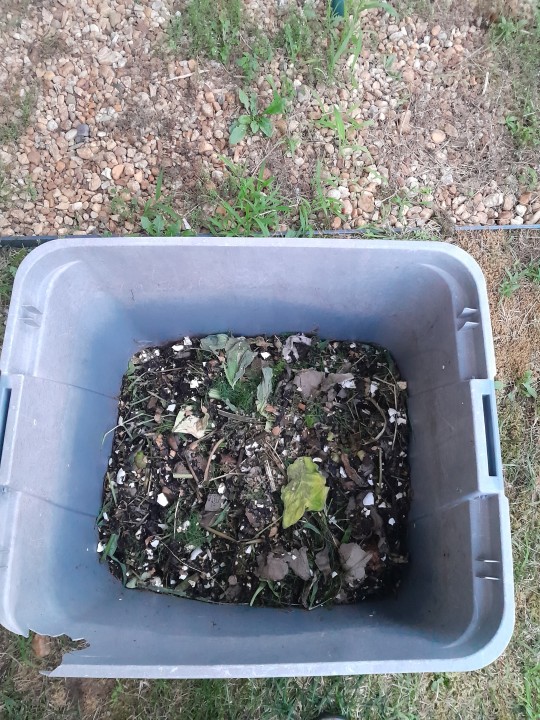
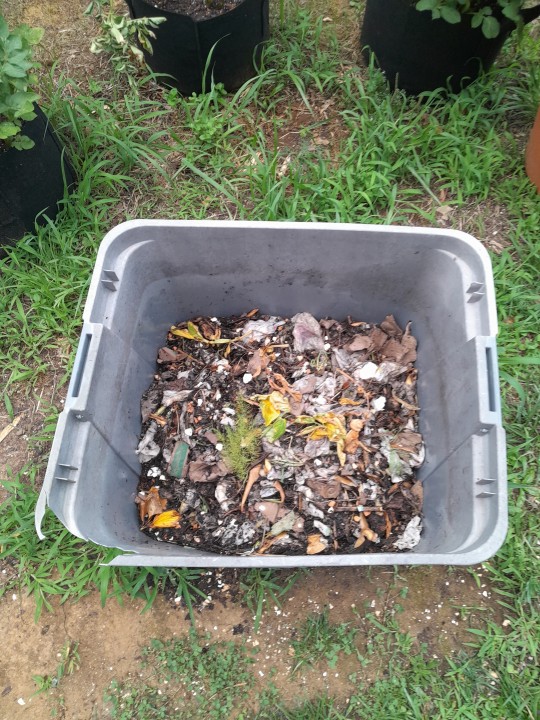
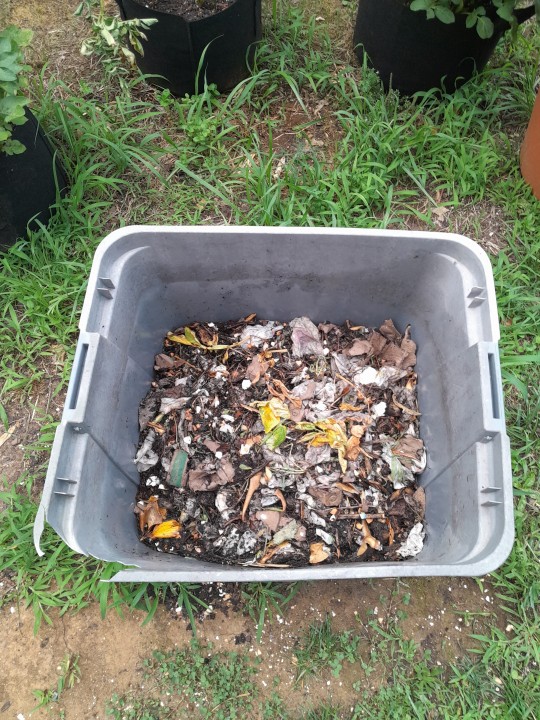
My compost bin throughout the growing season
2 notes
·
View notes
Quote
In today’s linear system, massive volumes of freshwater, synthetic inputs like chemical fertilisers, fossil-derived energy, and soil are used to produce 7.1 billion tonnes of food globally. Yet, so much of this is wasted. A large proportion of our food is destined for consumption within cities, where 2.8 billion tonnes of food waste and human waste are created each year. In cities, less than 2% of organic waste and the nutrients it contains is captured, treated safely, and used productively again. This results in missed economic opportunities and negative impacts on human health, local ecosystems, and agricultural land.
‘Eliminating food waste’, Ellen MacArthur Foundation
#Ellen MacArthur Foundation#food waste#linear system#freshwater#food production#human waste#organic waste
4 notes
·
View notes
Text
Phone: (562) 842-1342
Address: 8632 La Tremolina Lane, Whittier, CA 90605
Email: [email protected]
Installation of artificial grass, synthetic pet turf, synthetic putting greens, pavers, concrette
#Maintaining artificial lawns#Rinse pollutants away#Cleaning Pet Waste#Removing Stains#Organic Waste#Fluffing Your Turf
1 note
·
View note
Text
Organic waste Composting Machine
Organic waste composting machines are designed to convert organic waste into compost within 22-24 hours. They operate on a pre-programmed controlled system that minimizes the need for manual labor and can significantly reduce electricity costs by 60-70%. These machines often come with features like an automatic feeding arrangement, which helps in loading the Organic waste into the machine, and an inbuilt shredder, which is optional but aids in breaking down the waste into smaller pieces for faster decomposition.
1 note
·
View note
Text
Home Compost Bins - MyGreenBin
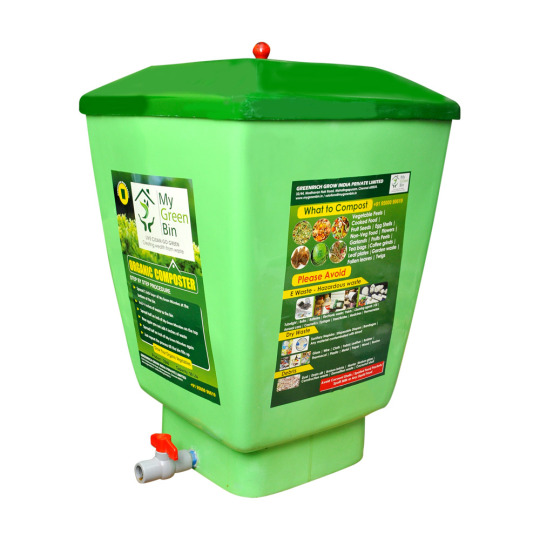
Buy Home Compost Bins online and transform your kitchen scraps and garden waste into nutrient-rich compost with a home composter. Start composting today! Home compost bins provide a simple, cost-effective, and eco-friendly solution for managing organic waste. By incorporating composting into daily life, individuals can contribute to waste reduction, soil enrichment, and a more sustainable and environmentally conscious lifestyle.
#home composter#home compost bins#composting#waste management#waste disposal#wastereduction#waste removal#gardening#plants#home gardening#organic waste#organic manure#kitchen waste#organic waste reduction#environment#sustainability#home garden#compost#waste bins
1 note
·
View note
Text
Afyren and Suez join forces to develop a new, complementary organic waste recovery process
Nicolas Sordet, CEO AFYREN
Afyren, a greentech company that offers manufacturers natural, low-carbon ingredients produced using unique fermentation technology based on a completely circular model, and Suez, a world leader in circular solutions for water and waste management, are working together on a new way of creating value from organic waste.
Continue reading Afyren and Suez join forces to…

View On WordPress
0 notes
Text
IIT Guwahati two-stage biodegradation in organic waste management
Researchers from the Waste Management Research Group (WMRG) at the Indian Institute of Technology, Guwahati, led by Professor Ajay S Kalamdhad have developed a new approach to assist the municipal corporations to manage organic waste. The novel two-stage biodegradation technique combines Rotary Drum Composting with Vermicomposting (RDVC), resulting in an efficient and environmentally friendly…

View On WordPress
0 notes
Text
Alfa Laval and Bisviridi partner to revolutionize biofuel production from organic waste
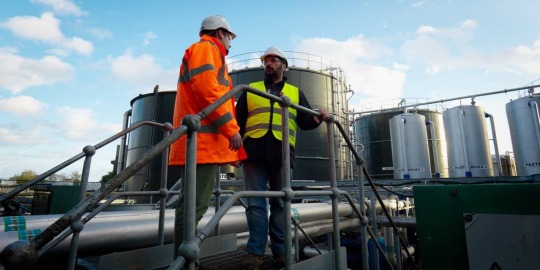
Alfa Laval, the global leader in heat transfer, centrifugal separation, and fluid handling, and Bisviridi, a new company part of the BioteCH4 group, the leading anaerobic digestion (AD) operator in the United Kingdom, are collaborating to elevate the sustainability potential of organic and food waste recycling... READ MORE
0 notes
Text
"A new community housing development in the Bronx will feature a cool piece of kit: an on-site aerobic digester that can turn 1,100 pounds of food scraps into 220 pounds of high-quality fertilizer every single day.
Built by Harp Renewables, it’s basically a big stomach filled with bacteria that breaks down food scraps and wasted food into their component parts, and in the future could be a standard part of all apartment units as the amount of food waste in American reaches 30% of the total mass of all trash collection.
The Peninsula, organized by Gilbane Development Company, will feature 740 units of affordable housing, 50,000 square-foot light industrial space and equal sized green space, and 15,000 feet of commercial space, all of which will send their castaway comestibles right into the digester...
Fast Company reports that Christina Grace, founder of a zero-waste food management company, helped plan the design and implementation of the digester into The Peninsula, and helped organize a 40% grant from the city to pay the $50,000 upfront cost.
“The goal is for this material to work its way into the community garden network in the Bronx,” [Christina Grace, who helped plan the design] told the magazine, adding that she expects it to pay for itself over just a few years. “We see this as highly replicable in both commercial and residential venues. We know there’s a need for fertilizer.”
Producing fertilizer right there in the city reduces the need for it to be trucked in from afar, chipping away, even if just a bit, at NYC traffic.
Big problem solver
Perhaps uniquely beneficial to New York City compared to other spots in the U.S. is that the digester will have a significant impact on the Bronx’s share of the city’s rodent problem.
Those who’ve watched the Morgan Spurlock documentary Rats will understand why that’s significant—while those that haven’t will have to imagine what living in a megacity where rats outnumber people by around 8 or 10 to 1 looks like.
Another big problem the bio-digesters could potentially help is pollution and greenhouse gas emissions. Fertilizer is a big emitter of all three of the most-targeted GHGs. Fertilizer, like quarry dust and ammonia is, like so many commodities, often imported from countries who specialize in its production, such as Norway, but also Russia and Ukraine, whose conflict has recently highlighted the fragility of the supply chain with sharp increases in prices...
Bio-digesters by design keep the CO2 and methane in the fertilizer produced, rather than it entering the atmosphere.
For these reasons and more, the aerobic bio-digester is slowly making its way into residential and industrial spaces around the country.
GNN reported on an enormous bio-digester at the heart of the D.C. advanced resource (sewage) recovery center outside the capital, and on the use of bio-digesters on Australian pig farms which are helping reduce the environmental and psychological impact of the effluent produced from such operations.
Harp Renewables tweeted how happy they were to have installed their bio-digester in the town of Cashel, Ireland.
Expect to see more stories like this pop up around the globe."
-via Good News Network, March 17, 2022
Note: Obviously gentrification bad and "affordable housing" is sometimes nowhere near as affordable as it should be, etc. etc. That said, this is such a fantastic use case that I felt I had to post it anyway.
#new york#new york city#bronx#bronx new york#supply chain#fertilizer#circular economy#sustainability#sustainable architecture#sustainable agriculture#united states#apartment buildings#bio-digester#good news#food waste#organic waste#hope#hope posting
323 notes
·
View notes
Text
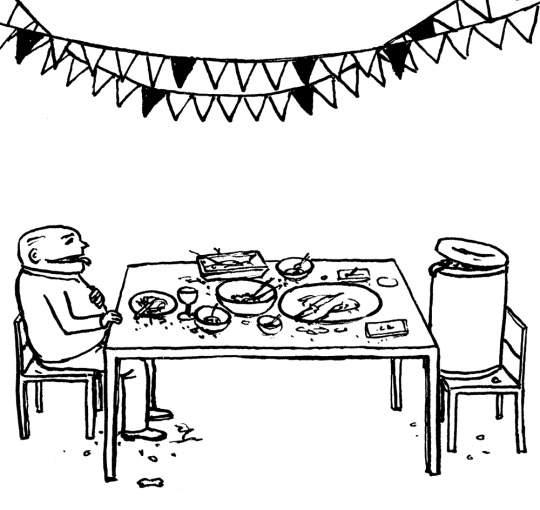
0 notes
Link
1 note
·
View note
Text
Lomi: Convert Kitchen Waste to Plant Food
Do you compost your organic waste or is the chore too much of a hassle? I must admit, I go back and forth. Recently though, I came across an option for an electric kitchen composter that may have piqued my interest enough to coerce me back into the practice. Reducing food waste into nutrient-dense plant food? Did someone say plants? I like that idea, as long as fruit flies and rotten odours don’t…

View On WordPress
#garbageincinerators#kitchenwaste#landfills#Lomi#nutrient-dense#organic waste#plant food#smart waste appliance#@Lomi#garbage#incinerators#kitchen waste
0 notes